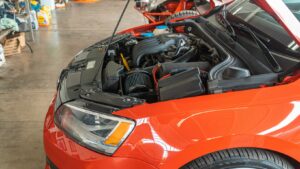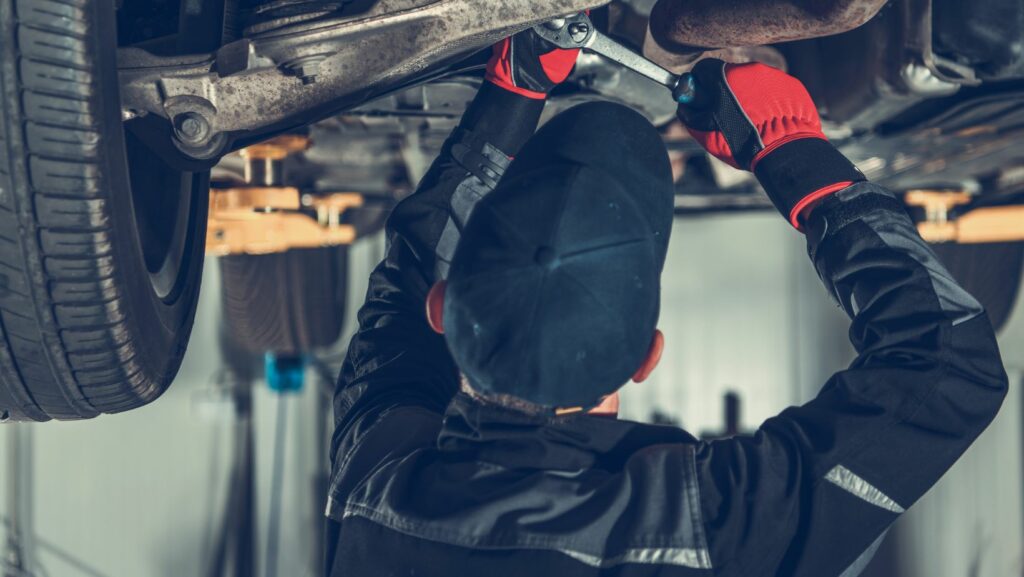How Much Does Car Maintenance Cost
- Understand Key Costs: Car maintenance costs vary widely, with regular services like oil changes averaging between $30 to $100, and more extensive repairs, such as engine or transmission work, costing significantly more.
- Regular Maintenance is Crucial: Preventive maintenance tasks, like oil changes and tire rotations, help extend vehicle lifespan and can prevent larger, unexpected repair bills.
- Factors Influence Costs: Vehicle make, model, age, driving habits, and geographic location all impact maintenance expenses, making it important for owners to understand these variables when budgeting.
- Types of Maintenance: Distinguish between preventive maintenance, aimed at avoiding issues, and corrective maintenance, which addresses problems after they occur, often at a higher cost.
- Vehicle Type Matters: Different types of vehicles (sedans, SUVs, trucks) come with varying maintenance costs; sedans typically cost less to maintain compared to larger vehicles like SUVs and trucks.
- Cost-Saving Strategies: Car owners can reduce expenses through DIY maintenance for simple tasks and by choosing reliable, cost-effective mechanics, ensuring they get the best value for their maintenance needs.

Owning a car comes with its fair share of responsibilities, and one of the most significant is maintenance. Understanding how much car maintenance costs can help drivers budget effectively and avoid unexpected expenses. From routine oil changes to more extensive repairs, these costs can vary widely based on the vehicle’s make, model, and age.
Many car owners underestimate the financial commitment required to keep their vehicles in top shape. By exploring the typical expenses associated with car maintenance, individuals can make informed decisions about their automotive care. Whether it’s a simple tire rotation or a major engine overhaul, knowing what to expect can lead to better planning and peace of mind on the road.
Overview Of Car Maintenance Costs
Understanding car maintenance costs involves examining typical expenditures and recognizing the variables influencing these amounts. Car owners can budget effectively by analyzing these costs.
Breakdown Of Regular Services
Regular services encompass essential tasks such as oil changes, tire rotations, brake inspections, and fluid checks. These services typically happen at various intervals:
- Oil Changes: Approximately $35 to $75 every 5,000 to 7,500 miles.
- Tire Rotations: Costs around $20 to $50 every 5,000 to 10,000 miles.
- Brake Inspections: Range from $100 to $300 depending on parts’ condition and repair needs.
- Fluid Checks: Regularly scheduled inspections may cost between $10 to $150.
By maintaining a schedule for these services, car owners enhance vehicle longevity and performance.
Factors Affecting Maintenance Costs
Several factors significantly impact car maintenance expenses. These factors include:
- Vehicle Make and Model: Luxury vehicles often incur higher repair and maintenance costs due to specialized parts and labor.
- Vehicle Age: Older cars typically require more frequent repairs and part replacements.
- Driving Habits: Intensive driving, such as stop-and-go traffic or towing, can accelerate wear and tear.
- Geographical Location: Costs vary by region, often affected by local labor rates and environmental conditions.
Recognizing these factors allows car owners to anticipate maintenance needs and budget accordingly.
Types Of Car Maintenance
Understanding the types of car maintenance helps car owners budget more effectively and anticipate costs. Maintenance generally falls into two categories: preventive and corrective.
Preventive Maintenance
Preventive maintenance focuses on routine tasks that prevent breakdowns and extend a vehicle’s lifespan. Common preventive maintenance activities include oil changes, tire rotations, brake inspections, and fluid checks.
| Maintenance Task | Frequency | Cost Range ($) |
|---|---|---|
| Oil Change | Every 5,000 miles | 30 – 100 |
| Tire Rotation | Every 5,000 miles | 20 – 50 |
| Brake Inspection | Annually | 50 – 150 |
| Fluid Check | Biannually | 0 – 100 |
By adhering to a preventive maintenance schedule, car owners maintain vehicle safety and efficiency, potentially avoiding more significant repair expenses.
Corrective Maintenance
Corrective maintenance involves repairs made after a vehicle experiences issues. This type of maintenance addresses problems such as engine failures, transmission issues, and brake malfunctions.
Common corrective maintenance tasks include:
- Brake replacement: Costs range from 150 to 700 based on brake type and labor.
- Transmission repair: Costs can go from 1,000 to 3,500 depending on the extent of the damage.
- Engine repair: Ranges from 200 to 4,000 based on complexity.
Corrective maintenance protects a car’s functionality but often incurs higher costs, making it essential to monitor vehicle performance regularly.
Average Costs By Vehicle Type
Car maintenance costs vary significantly by vehicle type. Understanding these differences helps owners budget effectively for regular upkeep and repairs.
Sedans And Compact Cars
Sedans and compact cars generally have lower maintenance costs compared to larger vehicles. The average annual maintenance cost for these cars ranges from $400 to $600. Common services include:
- Oil Changes: Typically $30 to $60 every 5,000 to 7,500 miles.
- Tire Rotations: Usually $20 to $50 every 5,000 to 7,500 miles.
- Brake Inspections: Costs average $100 to $150 annually.
Routine maintenance for sedans and compact cars can prevent larger repair bills, making it financially advantageous for owners.
SUVs And Trucks
SUVs and trucks incur higher maintenance costs due to their size and complexity. The average annual maintenance cost for these vehicles ranges from $600 to $900. Common expenses include:
- Oil Changes: Typically $50 to $80 every 5,000 to 7,500 miles.
- Tire Rotations: Usually $30 to $60 every 5,000 to 7,500 miles.
- Brake Inspections: Costs average $150 to $200 annually.
Higher maintenance costs stem from larger components and specialized services. Staying on top of preventive maintenance can significantly reduce the risk of more expensive repairs.
Tips To Reduce Maintenance Costs
Car owners can lower maintenance costs by exploring various strategies. Implementing proactive measures like DIY options and selecting the right mechanic plays a crucial role in managing expenses.
DIY Maintenance Options
 Car owners can perform simple maintenance tasks themselves to save money. Changing the oil, rotating tires, and replacing air filters are common DIY tasks that require basic tools and knowledge.
Car owners can perform simple maintenance tasks themselves to save money. Changing the oil, rotating tires, and replacing air filters are common DIY tasks that require basic tools and knowledge.
For instance, an oil change can cost $30 to $100 at a shop, while doing it oneself often only requires the cost of oil and a filter, averaging around $25. Regularly cleaning the vehicle’s exterior and interior can also extend its lifespan and maintain its value, which prevents costly repairs down the line.
Choosing The Right Mechanic
Selecting a trustworthy, cost-effective mechanic can significantly impact maintenance expenses. Research local shops and read reviews to determine their reputation and service quality. Mechanics with certifications, such as ASE (Automotive Service Excellence), often provide high-quality service at fair prices. Comparing estimates from different shops for services like brake replacements or transmission checks can yield savings.
For instance, brake pad replacement costs can vary from $100 to $300 depending on the mechanic’s reputation and location. Building a relationship with a reliable mechanic often leads to loyalty discounts or better pricing on future services.
Enjoyable Driving Experience
Understanding car maintenance costs is essential for any vehicle owner. By recognizing the various factors that influence these expenses, individuals can plan their budgets more effectively. Preventive maintenance not only helps keep cars running smoothly but also minimizes the risk of costly repairs down the line.
With a clear grasp of typical costs associated with routine services, car owners can take proactive steps to manage their vehicle’s upkeep. By opting for DIY tasks when possible and choosing the right mechanic, they can significantly reduce their overall maintenance expenses. Ultimately, informed decisions lead to better vehicle care and a more enjoyable driving experience.

